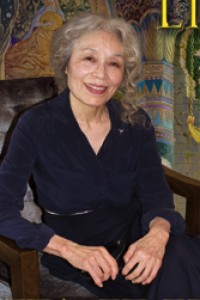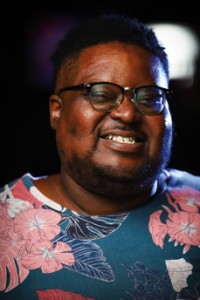ICon 2019 Report
![]()
Rituals are important for every community. For Israeli fandom there is an annual ritual after each ICon in which people rant on Facebook about how the venue is too small and we should find another place to hold ICon. They do have a point, but it’s a good thing — ICon is getting bigger each year. This time over the three days of the festival some 450 events were held, drawing thousands of people from all walks of life. Organizers estimate about 12,000 tickets were sold to these events, more than any year before.
The events covered everything from board games through miniature-making workshops, writing workshops by some of Israel’s leading genre writers, lectures and panels about genre works, all the way to talks about science. From the supernatural in the poetry of Nathan Alterman, one of Israel’s greatest poets, to a lecture by Yoav Landsman, senior systems engineer and deputy mission director of SpaceIL’s Bereshit moon mission. We’ve also seen in recent years more content dealing with Jewish traditions, and a lecture I attended about legal disputes involving demons in Jewish history was a lot of fun.
The organizing bodies continue their efforts to generate content aimed for young people, both for the children themselves and for parents who are fans and want to attend ICon, and so there were events meant for children as young as 5. Since there are no dedicated media conventions (such as ComicCon) in Israel, this content is also prominent in ICon. This year a special guest of the festival was Japanese animator, director and screenwriter Isamu Imakake.
In conventions like ICon that have a theme, choosing the right theme can have a great impact on the content. This year’s theme, “Memories”, lent itself to some great and varied content. The scientific end of the spectrum included a TED talk style panel, short lectures about memory in different disciplines from neuroscience through sociology to archeology, lectures about the way the universe “remembers” its past, the way people use mythology to preserve (and invent) memories, and so on. At the SFF side it included panels and talks dealing with amnesia and memory as plot devices in different works, with libraries as memory repositories, with the memory of earth in works far away in time and space, and many more.
![]()
But the great attraction in this year’s ICon was the guest of honor Brandon Sanderson. Fans flocked around him where ever he went and his events were all sold out. He gave workshops, talks, panels, and a Q&A, and read from one of the books he’s currently working on. I had a chance to talk to him and ask him about his impression of ICon. “I’m really impressed,” he said. “Feels like it’s taking the best of European SF festivals which are open and free for the public and often have a large number of community people coming, and the best of American style SF cons which have very fan-oriented programing and really involve the core fandom. And it looks like you’re getting both. You’re getting a lot of young people. You’re getting a lot of people from the community just having an interest in it, and you’re also doing some really strong fannish sort of panels and literary style panels as well.”
He talked about his work and how Writing Excuses, now in its 13th year, came about. “[It] has a very fun history. It began right about the time that podcasts were taking off as a new medium, and my brother, who’s not really an SF fan … wanted to do a podcast for a class he was taking in media, and he came to me and he pitched me doing a scripted podcast for him.” Sanderson went on to say that when he started listening to podcasts he felt frustrated, because many were not focused enough. He wanted a writing podcast that stays on topic, that’s actually about writing. After a few years he and his original cohosts (Dan Wells and Howard Tayler) realized that “three guys from the same city with the same background” might not be enough and they invited Mary Robinette Kowal to join them. “We actually won a Hugo on it and after that our evolution was to try and diversify the cast even further, to get more different kinds of feedback and more viewpoints.”
I asked him if doing Writing Excuses and teaching has impacted his writing. “Yea, it really has,” Sanderson answered. “Talking about your process, having to be able to outline your process and speak about it, actually teaches you a lot about your own writing. What it really changed is my ability to troubleshoot my writing.” What he used to do by instinct, he said, is now a much more conscious process.
![]()
We went on to talk about the future of fantasy and where he thought the genre was headed. “There is no one way that fantasy literature is going,” says Sanderson, “but we are more diverse in fantasy, not just in the types of people who are writing, but also in the types of stories that can be popular. I think self-publishing has certainly helped with this, indie publishing. I think that pop culture taking more notice of traditionally nerd culture has certainly given more avenues for fantasy to reach different audiences, more mainstream audiences. And all together this just makes it a great place to be right now.”
This ties in with what I opened with — the way ICon keeps getting bigger. The continued success and appeal of mass media genre hits such as Game of Thrones, the Marvel Cinematic Universe and The Handmaid’s Tale are bringing new audiences to ICon. The success of Israeli genre fiction, from self-published YA to the publication of original genre books by major publishers in Israel, is piquing the interest of new people. This was the 23rd year ICon was held, and we keep getting better and better in organizing it. In spite of the mega-threads of complaints on Facebook, it is clear that the organizers are learning and evolving from year to year, and the festival was run smoothly and efficiently. There will always be those that are not content. If we want ICon to keep getting bigger and more diverse (and we do) and we want to have more guests like Sanderson (and we do) we are on the right track.
–Ehud Maimon
Photos by Dan Ofer, Jonathan Weitz, Itay Sasson, and Hila Yaniv
This report and more like it in the December 2019 issue of Locus.
 While you are here, please take a moment to support Locus with a one-time or recurring donation. We rely on reader donations to keep the magazine and site going, and would like to keep the site paywall free, but WE NEED YOUR FINANCIAL SUPPORT to continue quality coverage of the science fiction and fantasy field.
While you are here, please take a moment to support Locus with a one-time or recurring donation. We rely on reader donations to keep the magazine and site going, and would like to keep the site paywall free, but WE NEED YOUR FINANCIAL SUPPORT to continue quality coverage of the science fiction and fantasy field.






